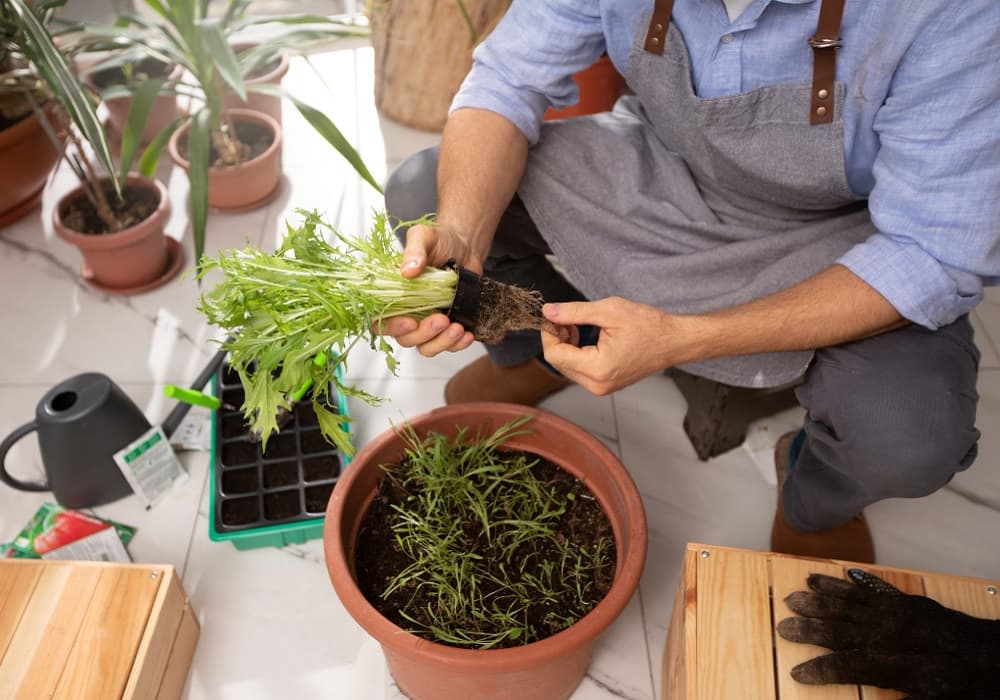Simple and Effective Home Gardening Tips for Beginners
Gardening is not only a rewarding hobby but also a therapeutic activity that connects you with nature. If you’re new to gardening, getting started with home gardening tips for beginners can seem daunting. However, with the right tips and a little guidance, you can create a thriving garden right at home. Here’s a comprehensive guide to help beginners embark on their gardening journey.
1. Start with the Basics: Choose the Right Plants
Choosing the right plants is crucial for beginner gardeners. Opt for low-maintenance plants that are suitable for your climate and garden space. Herbs like basil and mint, and vegetables like tomatoes and lettuce are great choices for beginners.
2. Prepare Your Garden Bed
Whether you’re gardening in containers, raised beds, or directly in the ground, ensure proper soil preparation. Use nutrient-rich soil and consider adding compost for better drainage and fertility. Proper soil preparation sets the foundation for healthy plant growth.
3. Understand Sunlight and Water Needs
Most plants thrive in sunlight, but the amount can vary. Before planting, observe your garden area throughout the day to understand sunlight patterns. Likewise, water your plants regularly, ensuring they receive adequate moisture without being waterlogged.
4. Plant Carefully and Space Properly
Plant seeds at the proper depth and spacing to avoid overcrowding as plants mature. Appropriate spacing enables adequate airflow and lowers the risk of infections. Refer to planting directions found on seed packs or plant labels.
5. Mulch for Moisture Retention
Applying mulch around your plants helps retain moisture in the soil, reduces weed growth, and maintains soil temperature. Organic mulches like shredded leaves or bark are ideal for home gardening.
6. Practice Regular Maintenance
Regular maintenance is key to a successful garden. This includes watering as needed, removing weeds, and inspecting plants for pests or diseases. Prune plants as necessary to promote healthy growth and remove dead or diseased foliage.
7. Learn from Your Garden
Gardening is a continuous learning process. Observe how your plants respond to different conditions and learn from any challenges you encounter. Each season provides opportunities to improve your gardening skills and enhance your garden’s beauty.
8. Explore Container Gardening
If space is limited, consider container gardening. Plants can be grown in containers on patios, balconies, or even indoors. Choose containers with drainage holes and use quality potting mix tailored to the plants you’re growing.
9. Utilize Companion Planting
Companion planting involves planting compatible plants together to benefit each other. Planting marigolds next to tomatoes, for instance, can keep pests away. Research companion planting combinations suitable for your garden.
10. Embrace Sustainable Practices
Practice sustainable gardening by minimizing chemical use and conserving resources. Use organic fertilizers and pesticides when necessary, or explore natural alternatives. To make nutrient-rich soil additions, compost kitchen leftovers.
Conclusion
Although planting your first home garden could seem intimidating, you can create a successful garden area by following these easy and useful home gardening tips for beginners. Remember, gardening is a journey of discovery and enjoyment. By applying these tips and nurturing your plants with care, you’ll soon reap the rewards of your efforts.
Frequently Asked Questions
1. What are the easiest plants to grow for beginners?
Some of the easiest plants for beginners include herbs like basil, mint, and parsley, as well as vegetables such as tomatoes, lettuce, and peppers. These plants are generally forgiving of beginner mistakes and thrive with basic care.
2. How often should I water my garden?
The type of soil, plant species, and weather all affect how frequently a plant has to be watered. As a general rule, water deeply when the top inch of soil feels dry, typically 1-2 times per week. Adjust watering based on weather conditions to prevent overwatering or underwatering.
3. How can I prevent pests and diseases in my garden?
To prevent pests and diseases, practice good garden hygiene by removing weeds and debris regularly. Use companion planting to naturally deter pests, and inspect plants regularly for signs of pests or diseases. If required, think about employing organic pest control techniques.
4. What should I do if my plants are not growing well?
Examine potential problems including insufficient sunlight, poor soil, overwatering or underwatering, pests, or diseases if your plants are not developing healthily. Adjust conditions accordingly, such as providing more sunlight or improving soil drainage, and monitor plant health closely.
